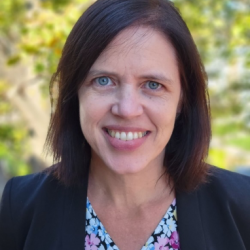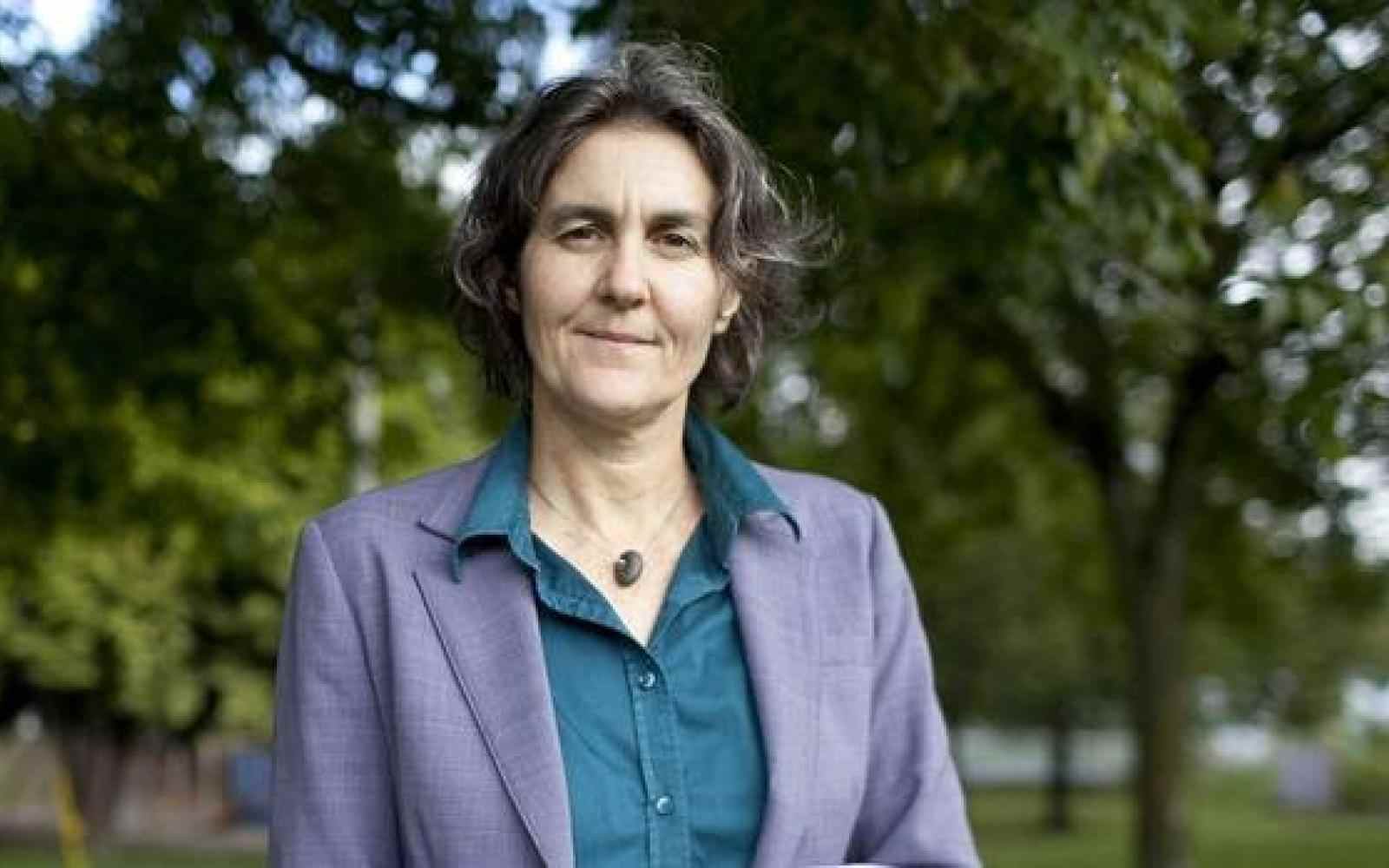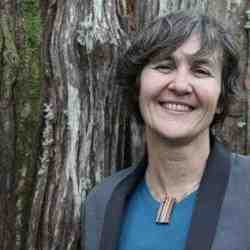
Claire Fallender
Claire has a deep sense of justice and fairness which has led her towards a career in building systems that support social entrepreneurs and young changemakers driving positive impact in the world.
Claire’s trajectory was highly influenced by supportive parents: A mathematician mother who challenged inflexible gender norms until she chose to pivot all her acumen into community leadership in public education and a business executive father whose work trips abroad taught Claire a sincere respect for a diversity of cultures not her own. They purposefully instilled in her a deep sense of fairness and a sense that she could do anything.
Claire’s changemaking journey started in high school where she became a leader in her school’s social change organization, overseeing a dozen student-led initiatives from housing to health to social justice. This work and early experiences volunteering with a community organization in Honduras exposed Claire first-hand to how well-intentioned people from outside a community could unintentionally do more harm than good.
In college Claire led a number of social justice initiatives. For instance, after witnessing labor violations so close to home as an intern with a leading garment worker’s union in New York, she launched the Students Against Sweatshops campaign at Yale, resulting in the administration approving a Code of Conduct to ensure the university’s ethical sourcing of its licensed goods. While studying in Chile, Claire was inspired by an Ashoka Fellow who demonstrated the kind of systems change impact only possible for someone who lives with the social problem and can skillfully put others into powerful roles. She graduated college and joined Ashoka’s team.
At Ashoka, Claire worked at every level of Venture, starting in D.C. and quickly moving to Brazil where she led the Venture/Fellowship program. She co-designed with a Fellow and launched Ashoka Brazil’s first youth changemaking program. Led by her passion for connecting the impact of social entrepreneurs and public policy change, she left Ashoka in 2004 to pursue a degree in Public Affairs at the Princeton School of Public and International Affairs where she eventually worked with UNICEF to develop the first inter-agency guidelines for supporting adolescent girls across 7 UN agencies.
After Princeton Claire joined the Oikos-Cooperation and Development, a social entrepreneur-led Portuguese organization in Mozambique, as a country leader in 2006. Her work catalyzed innovative approaches to support farmer and fishing cooperatives in their mitigation of the impacts of climate change and the HIV epidemic. Unsettled by the lack of support to Mozambican social entrepreneurs and changemakers, Claire returned to Ashoka to lead the Global Venture Program.
In the last decade, Claire has entreprenerd Ashoka’s LeadYoung initiative to help young people and now everyone to tell their Everyone a Changemaker story. She works across our global team of colleagues to develop tools and systems to align our global youth strategy and bring resources to support our core strategy. For example, she intrapreneured the four super key EACH dashboards.
In Claire’s free time, she loves to hike, make Halloween costumes and windchimes. She is grateful for the support of her husband and two young sons.
Where the wild things start: How Nicole Rycroft’s early love of nature inspired her environmental career

Ashoka Fellow Nicole Rycroft is protecting ancient forests by working with global book publishers, newspapers, magazines, and fashion brands to shift to alternative and sustainably produced wood-based fabrics and paper. Her environmental NGO Canopy counts more than 750 large customer companies from H&M to publishers of the Harry Potter series as partners in this fight.
Nicole says Canopy has been “a fun, fabulous ride.” But long before she started the organization in 1999, Nicole took her first steps toward a career as an environmental social entrepreneur in her native Australia. She founded her first environmental organization in school at the age of 9. At the age of 10, she wore a Florence Nightingale costume around school–complete with cape and veil–to raise awareness and money for the Red Cross.
Ashoka: Tell us about growing up in Australia and that 9-year old Nicole starting her school environmental club.
Nicole: I spent a lot of time as a kid with my grandmother who had this infectious love of nature. The Australian bush is pretty intense in terms of sounds and smells; it’s a full sensory experience. I spent a lot of time as a kid running around my aunt and uncle’s and my grandmother’s back yard which were bush. It got woven into my fabric as a child, this deep love of wild places. From my school in Sydney which was on a high point, you used to be able to look to the west and on a clear day see what we called the Blue Mountains. Between when I started school and by the time I turned nine, air pollution had gotten so bad that you couldn’t see the mountains any more. So I started an environmental club with the encouragement of my school’s vice principal, and then got enthusiastic support from other students.
Ashoka: When we hear from different entrepreneurs who started things when they were younger, it seems there always was an important influence. Please tell us more about the role of the vice principal and other adults.
Nicole: He was pivotal. I think having that foundational love for nature infused in me by my family was important. And I was raised both by both a strong mother and grandmother so thankfully had that cockiness as a kid that I could do anything. I remember walking out from school one day with Mr. Wilkins and talking to him about how I couldn’t see the Blue Mountains anymore. On reflection it was a very artful guidance of the discussion on his part. He asked me some questions that led me to want to take action myself and ask other kids to get involved. He encouraged me by soft seeding—he took my awareness of a problem and pointed me toward actions.
Ashoka: What did you do?
Nicole: We did pretty “geeky” things, actually. Our club monitored pollution from out the window and put out a rain gauge to check daily. There was often a drought so it would usually be dry but we would go out and check it anyway quite enthusiastically. We started working with other schools to seed chapters, went on a TV show, did in-class presentations. Many of the teachers took it on and developed modules for the curriculum. When you’re young, you have this infectious enthusiasm that can lift all boats. The adults around us from teaching staff to my family really encouraged us. It was not always direct but even from the sidelines, it made a world of difference.
Ashoka: Did these interests continue after elementary school?
Nicole: In high school, I took on more of a traditional student politics route as well as small initiatives on the side. I was involved in student council, was captain of a sports house and vice captain of the school in my senior year. I received a lot of encouragement from teachers—maybe they saw potential in me or perhaps they were just humoring me. Either way, their investment in me kept me moving forward. I think it’s really important to enable kids to have confidence to take things on. If it means going against the status quo slightly or doing something quirky—I think those are the key qualities that were supported when I was young. And it made a huge difference. Later on, when my focus turned toward the environment, I had that belief in myself to just go for it, even though I had never led an NGO before.
Ashoka: How can adults support children in today’s rapidly changing world?
Nicole: I think kids today have to live with a higher level of ambiguity, both in terms of the natural world they are inheriting and their educational/professional trajectory. Supporting kids and young adults to be able to be comfortable with the uncomfortable is key. We should support them to trust their own instincts, help them be resilient in the face of failure and changing circumstances. They need to know that they may fall flat on their face but they can pick themselves up again. The sun will rise tomorrow.
Dan Schiff and Claire Fallender contributed to this story.
Subscribe to the Early Changemaking Story Series
